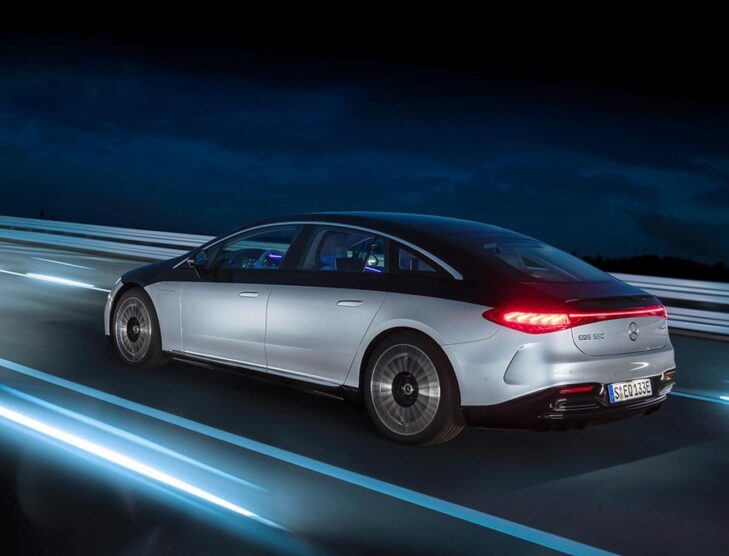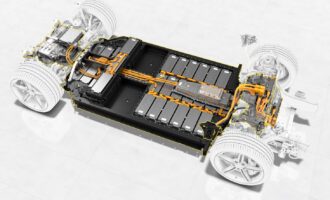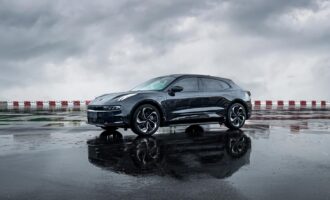
Mercedes-Benz to shift to all-electric vehicles by 2025
German automaker Mercedes-Benz is getting ready to go all electric by the end of the decade, where market conditions allow. Shifting from electric-first to electric-only, the world’s pre-eminent luxury car company is accelerating toward an emissions-free and software-driven future.
By 2022, Mercedes-Benz will have battery electric vehicles (BEV) in all segments the company serves.
From 2025 onwards, all newly launched vehicle architectures will be electric-only and customers will be able to choose an all-electric alternative for every model the company makes. Mercedes-Benz intends to manage this accelerated transformation while sticking to its profitability targets.
“The EV shift is picking up speed—especially in the luxury segment, where Mercedes-Benz belongs. The tipping point is getting closer and we will be ready as markets switch to electric-only by the end of this decade,” said Ola Källenius, CEO of Daimler AG and Mercedes-Benz AG. “This step marks a profound reallocation of capital. By managing this faster transformation while safeguarding our profitability targets, we will ensure the enduring success of Mercedes-Benz. Thanks to our highly qualified and motivated workforce, I am convinced that we will be successful in this exciting new era.”
To facilitate this shift, Mercedes-Benz is unveiling a comprehensive plan which includes significantly accelerating R&D. In total, investments into battery electric vehicles between 2022 and 2030 will amount to more than EUR40 billion (USD47 billion). Accelerating and advancing the EV portfolio plan will bring forward the tipping point for EV adoption.
Mercedes-Benz is currently preparing its global production network for electric-only output with the pace of the ramp-up designed to follow market demand. Because of its early investments into flexible manufacturing, and the state-of-the art MO360 production system, Mercedes-Benz said it can mass produce BEVs already today.
As soon as next year, eight Mercedes-Benz electric vehicles will be produced at seven locations on three continents. Furthermore all passenger car and battery assembly sites run by Mercedes-Benz AG will switch to carbon neutral production by 2022.
To enhance manufacturing efficiency, Mercedes-Benz is joining forces with GROB, a German global leader in highly innovative battery production and automation systems, strengthening its battery production capacity and know-how. The cooperation focuses on battery module assembly as well as pack assembly. Mercedes-Benz also plans to install a new battery recycling factory in Kuppenheim, Germany, to develop and secure recycling capacity and know-how. Start of operations will be in 2023, depending on the outcome of promising discussions with public authorities.
People Plan
The transition from internal combustion engines to electric vehicles is feasible and already underway at Mercedes-Benz.
Working together with employee representatives, Mercedes-Benz will continue the transformation of its workforce, making use of extensive re-skilling schemes, early retirement as well as buyouts. TechAcademies will be offering colleagues training for future-oriented qualifications. In 2020 alone, about 20,000 employees in Germany were trained in aspects of e-mobility.
To deliver on plans for developing the MB.OS operating system, 3,000 new software engineering jobs will be created worldwide.
Financial Plan
Mercedes-Benz remains committed to the margin targets outlined in the fall of 2020. Last year’s targets were based on the assumption of selling 25% hybrid and electric vehicles by 2025.
Today’s reiteration is based on an assumed xEV share of up to 50% by 2025 and a market scenario for new car sales which in essence has switched to fully electric by the end of the decade.
An important lever is to increase net revenue per unit by raising the proportion of high-end electric vehicles such as Mercedes-Maybach and Mercedes-AMG models, while at the same time taking more direct control over pricing and sales. Rising revenue from digital services will further support results.
Mercedes is also working on further reducing variable and fixed costs and cutting the capex share of investments. Common battery platforms and scalable electric architectures combined with advances in battery technology, will bring higher degrees of standardization and lower costs. The proportion of battery costs within the vehicle is expected to fall significantly.
Capital allocation is moving from EV-first to EV-only. Investments into combustion engines and plug-in hybrid technologies will drop by 80% between 2019 and 2026. On this basis, Mercedes-Benz projects company margins in a BEV world which are similar to those in the ICE era.
echo '








